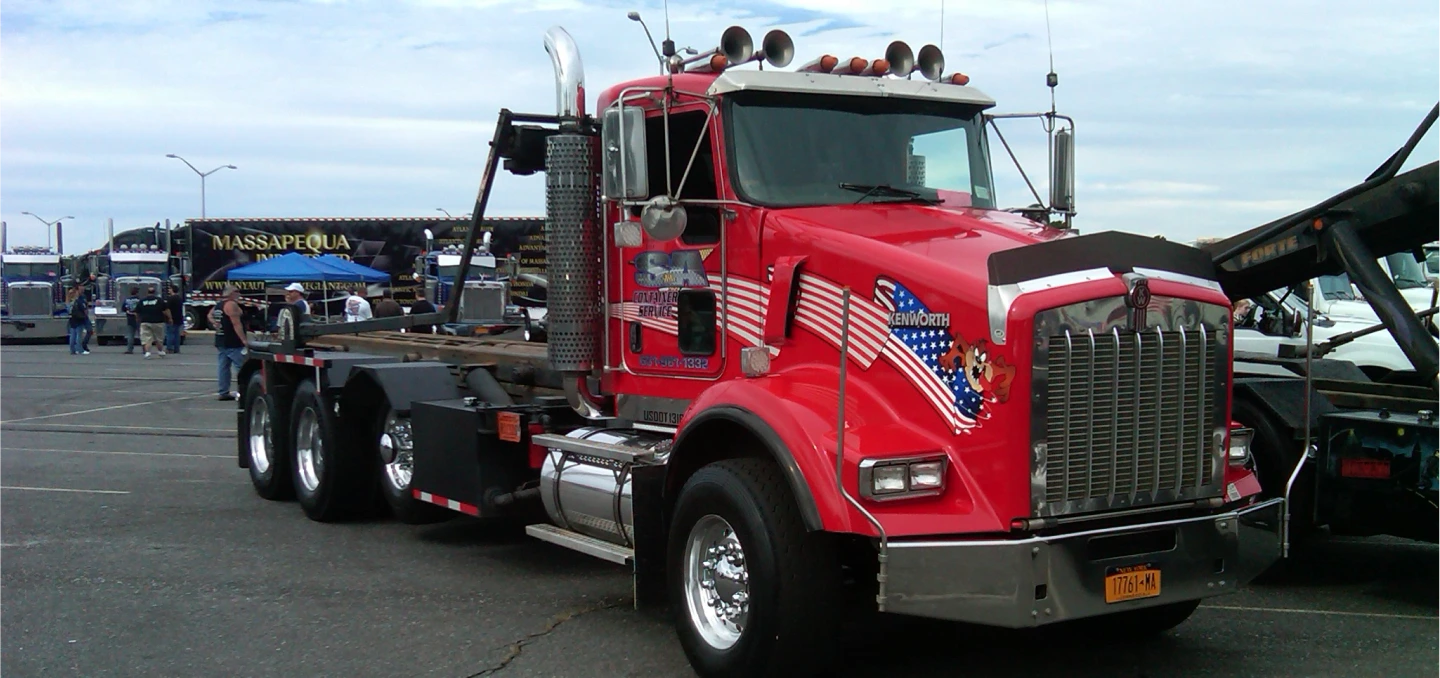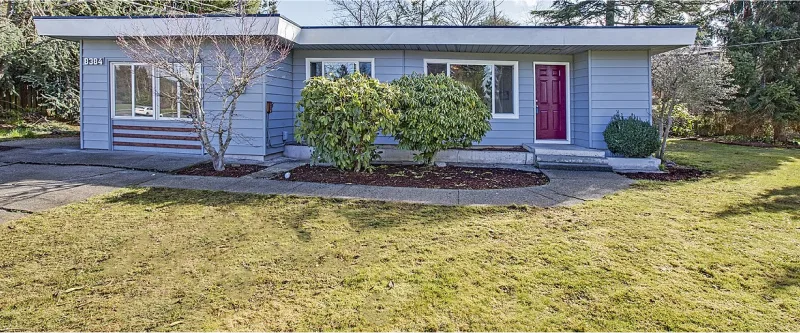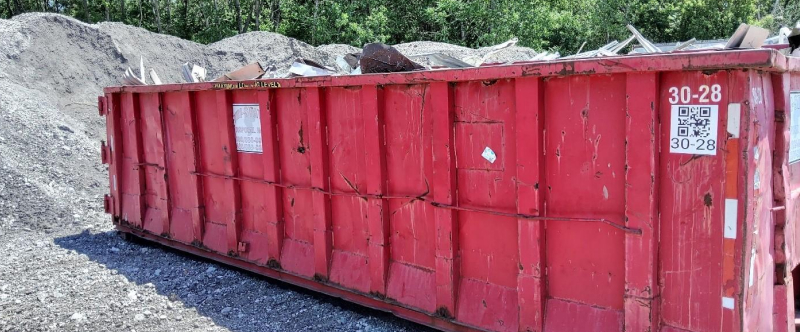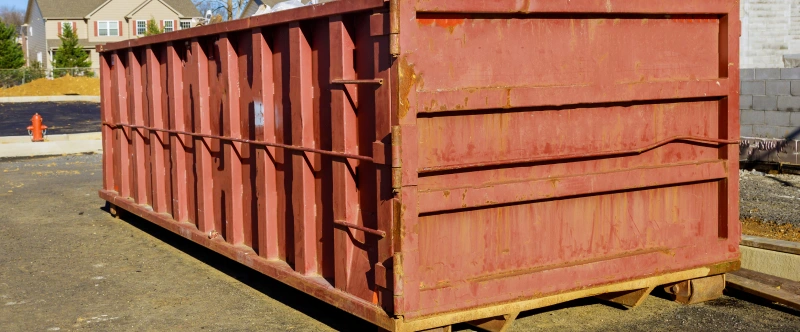Navigating the web of local regulations for what seems like a simple task—like renting a dumpster—can get surprisingly complex, especially in Suffolk County. Towns and villages across Suffolk have their own sets of rules, and these regulations can change over time.
“One of the biggest mistakes people make with dumpster rentals in Suffolk County is assuming they don’t need a permit, especially when placing the dumpster on the street or in certain residential areas,” says Bryan Goetz, owner of S&A Container Service. “A lot of folks don’t realize the town or village may have specific rules—and that can lead to fines or project delays. At S&A, we stay on top of all the local regulations across Suffolk County. We help customers figure out exactly what permits they need, and if required, we’ll even guide them through the process or handle it for them. It’s all about keeping things smooth, compliant, and stress-free.”
To make sure you’re prepared, we’ve put together a straightforward guide to understanding dumpster rental permits.
Understanding the Need for Dumpster Rental Permits in Suffolk
If you’re asking yourself whether you’ll need a permit for your rental dumpster, it really comes down to where you plan to place it. If you’re keeping the dumpster on private property—like your own driveway—you typically won’t need a permit.
But if you’re planning to place the dumpster on public property, such as a street, sidewalk, or any other public space, you’ll likely need approval from your local town or village. In fact, some towns don’t allow it at all.
For example, in the Town of Islip, homeowners are not permitted to place dumpsters in the street—they must be placed entirely on private property. On the other hand, the Town of Huntington does allow dumpsters to be placed in the street, but a permit is required. The permit costs $50 and is valid for five consecutive days.
So before you rent a dumpster, it’s important to check with your local municipality to find out what’s allowed and whether a permit is needed in your area.
Since Suffolk County includes a wide variety of municipalities, from Huntington to Southampton and beyond, it’s essential to check with your specific local government before you rent. Permit requirements help ensure public safety, minimize disruptions, and maintain the community’s appearance.
Situations That Require Dumpster Permits
There are a few common scenarios in Suffolk County where dumpster rental and or building permits are usually necessary:
- Home renovations involving major cleanouts or structural changes.
- Construction projects that generate large amounts of debris.
- Community events or gatherings where large-scale waste disposal is expected.
- Ongoing waste removal needs for commercial properties or multi-unit residential buildings.
The Permitting Process in Suffolk County
Most of the time, the responsibility for obtaining a dumpster rental permit falls on the dumpster rental company, not the homeowner. The rental company is typically required to apply for and maintain a valid town permit.
This helps streamline the process for homeowners, who usually don’t need to take any action themselves. In addition, the dumpster company can inform customers of the specific town or village rules and regulations regarding dumpster placement, ensuring everything is done by the book.
The exact steps for getting a dumpster rental permit can vary depending on which township or village you’re in, but here’s a general idea of what to expect:
1. Identify the Right Authority – Which Can Be Challenging
In Suffolk County, permits are typically handled by your local Town Hall, Building Department, or Highway Department—not county-wide. Some areas might also require you to notify or coordinate with your neighborhood association if applicable. Always check with your town (like Babylon, Islip, Brookhaven, Smithtown, or Riverhead) for their specific process.
2. Submit Your Application
You’ll need to fill out an application, either online or at your town office. Be ready to provide details about:
- The dumpster rental company you’re using.
- Property owner’s name and contact details.
- Exact dates you’ll need the dumpster.
- Precise location of where you’ll place the dumpster.
- Proof of insurance (many towns require this).
Having all this information prepared will help the process go more smoothly.
3. Site Inspection (If Required)
Depending on your town’s rules and where the dumpster will be placed, you may need a site inspection. This is to ensure the dumpster won’t block emergency access, traffic, or violate any local codes.
4. Permit Approval
Once reviewed, your application will either be approved or denied. If approved, you’ll usually need to pay a permit fee before receiving your documentation. Be sure to display your permit visibly on-site once it’s issued!
Dumpster Rental Permit Costs and Duration in Suffolk County
Understanding the costs and timeframes involved helps you budget properly for your project.
Permit Fees
Permit fees in Suffolk County vary depending on the town and the scope of the project. Most towns charge between $50 and $250. It’s very important to remember that permit fees are typically time-based and must be renewed every set number of days, according to the local Town or Village code.
For example, in the Village of Brightwaters, the town code states that a dumpster permit is valid for 10 days at a cost of $75. If the dumpster remains longer than 10 days, the permit must be renewed and another $75 fee will apply for each additional 10-day period.
Always check with your local building department or code enforcement office to confirm the specific requirements in your area before renting a dumpster.
Permit Duration
Most permits are issued for short-term use, typically aligning with your dumpster rental period. Depending on your project, this could range from a few days to several weeks or even months. Larger construction projects often require longer permit durations, while single-weekend cleanouts may only need short-term coverage.
Where to Obtain Dumpster Rental Permits in Suffolk County
Since Suffolk County is made up of many towns and villages, you’ll need to apply directly with your local municipality. Here are some examples of where to start:
- Town of Brookhaven: Division of Waste Management
- Town of Huntington: Highway Department
- Town of Islip: Department of Environmental Control
- Town of Babylon: Highway Department
- Town of Riverhead: Building Department
If you’re unsure, a quick call to your town hall will point you in the right direction.
Final Tip:
Before you finalize your dumpster rental, double-check the latest permit requirements in your area. Regulations can change, and staying ahead will help you avoid unnecessary fines or delays!
Common Pitfalls and How to Avoid Them
Falling short of regulations can lead to project delays and additional costs. Here are some common pitfalls to avoid:
Procrastination on Permitting
Start the permit application process as early as possible to avoid delays. Some permits may take several weeks to process, so beginning well ahead of your rental date is prudent.
Non-compliance with Permit Conditions
Ensure that all conditions stipulated in the permit, such as dumpster size, marking and lighting, and placement requirements are met to avoid fines and permit revocation.
Poor Site Preparation
Correctly preparing the site for dumpster placement is essential. This may involve obtaining a site usage permit and ensuring the area is safe and accessible.
Environmental and Neighborhood Considerations
It’s very important to check with your local regulations regarding when commercial trucks and equipment are allowed to operate in your area. In many municipalities, commercial deliveries—including dumpster drop-offs—are not permitted before 8:00 AM.
If your crew plans to begin work earlier than that, we strongly recommend scheduling your dumpster delivery for the day before construction begins.
This helps ensure a smooth start to your project while minimizing noise and service disruptions in the neighborhood, especially during early morning or late evening hours when residents are most sensitive to disturbances.
Waste Segregation
Comply with Suffolk’s strict waste segregation policies. The county is committed to its zero-waste goal and has comprehensive guidelines for disposing of various waste streams.
Tips for a Smooth Permitting Process
Facilitate a hassle-free permitting experience with some strategic planning and proactive measures.
Know the Regulations
Get to know the ins and outs of local regulations and policies regarding dumpster rentals. Being well-informed can help you submit an application that meets all the criteria.
Establish Lines of Communication
Maintain proactive communication with the permitting authority and your dumpster rental provider. Their guidance can streamline your efforts and provide valuable insights for a smoother process.
The Final Hurdle: Maintenance and Removal
Once your dumpster is on-site with the proper permits, the final step is maintenance and removal.
Regular System Checks
Inspect the dumpster regularly to ensure it’s in good working condition and promptly address any issues. In addition to reducing the risk of accidents and injuries, it also ensures smooth project operations.
Dumpster Removal
Schedule removal of the dumpster as soon as it is no longer needed to avoid additional fees or permits expiring. The area should be left clean and free from debris upon removal.



